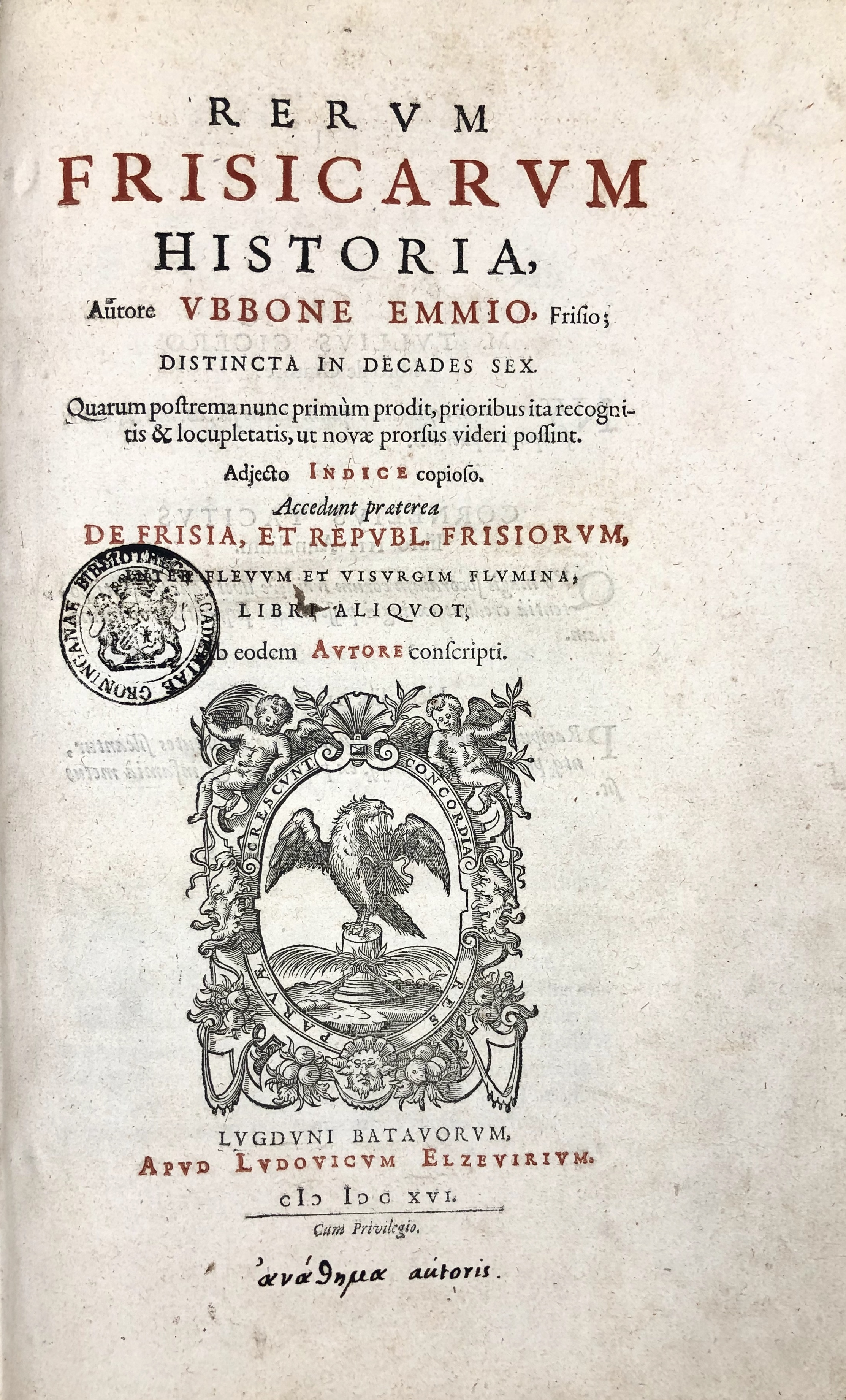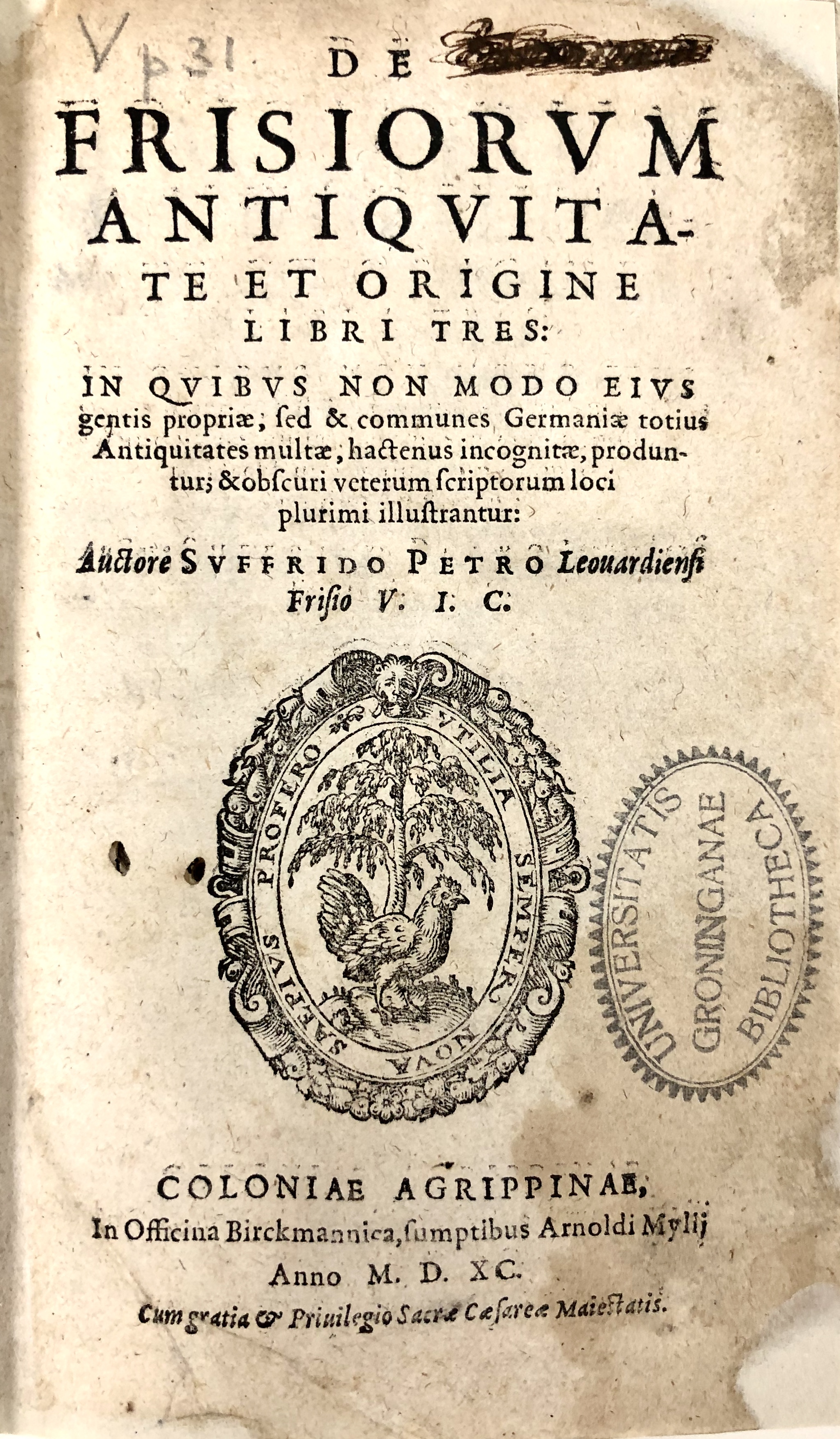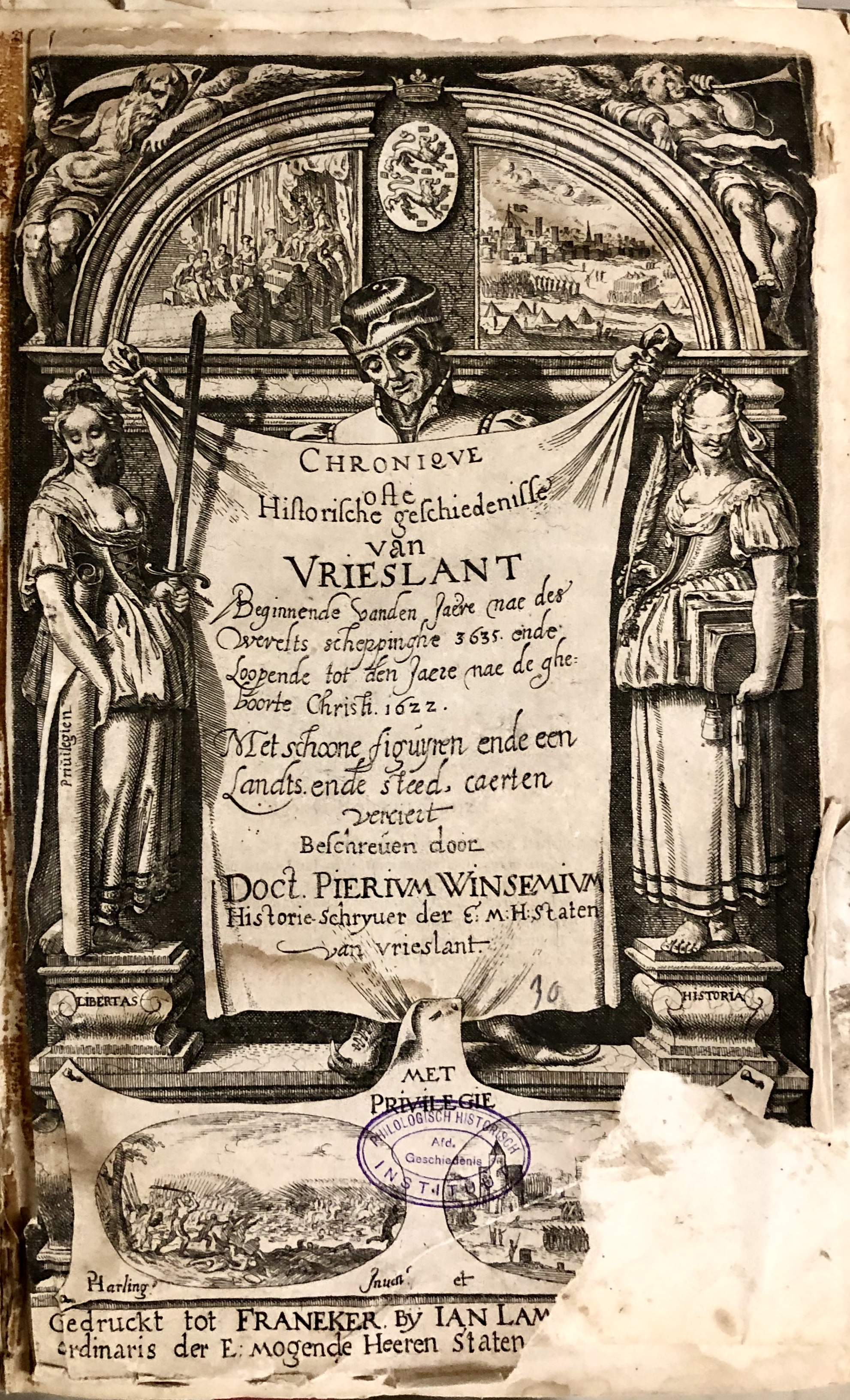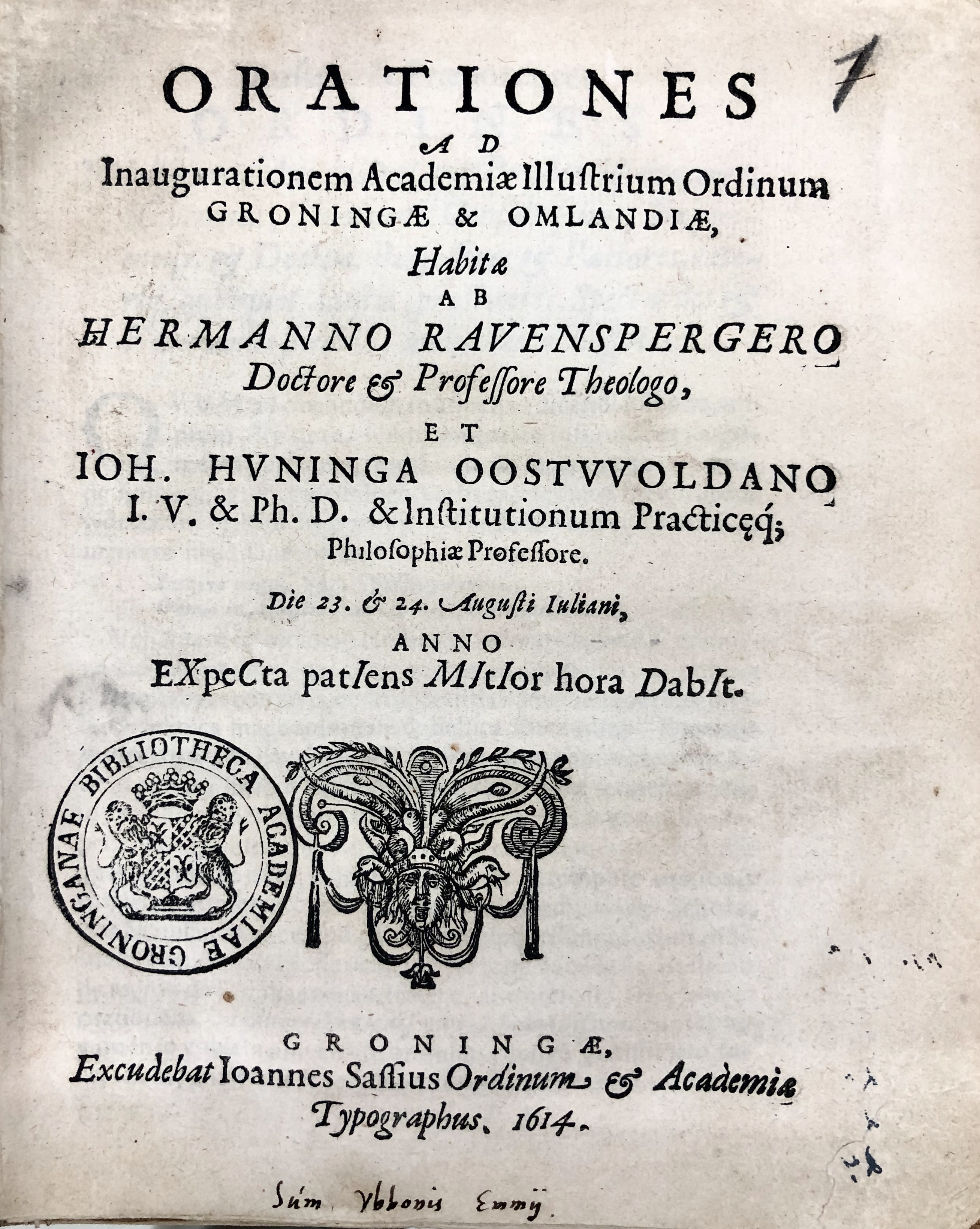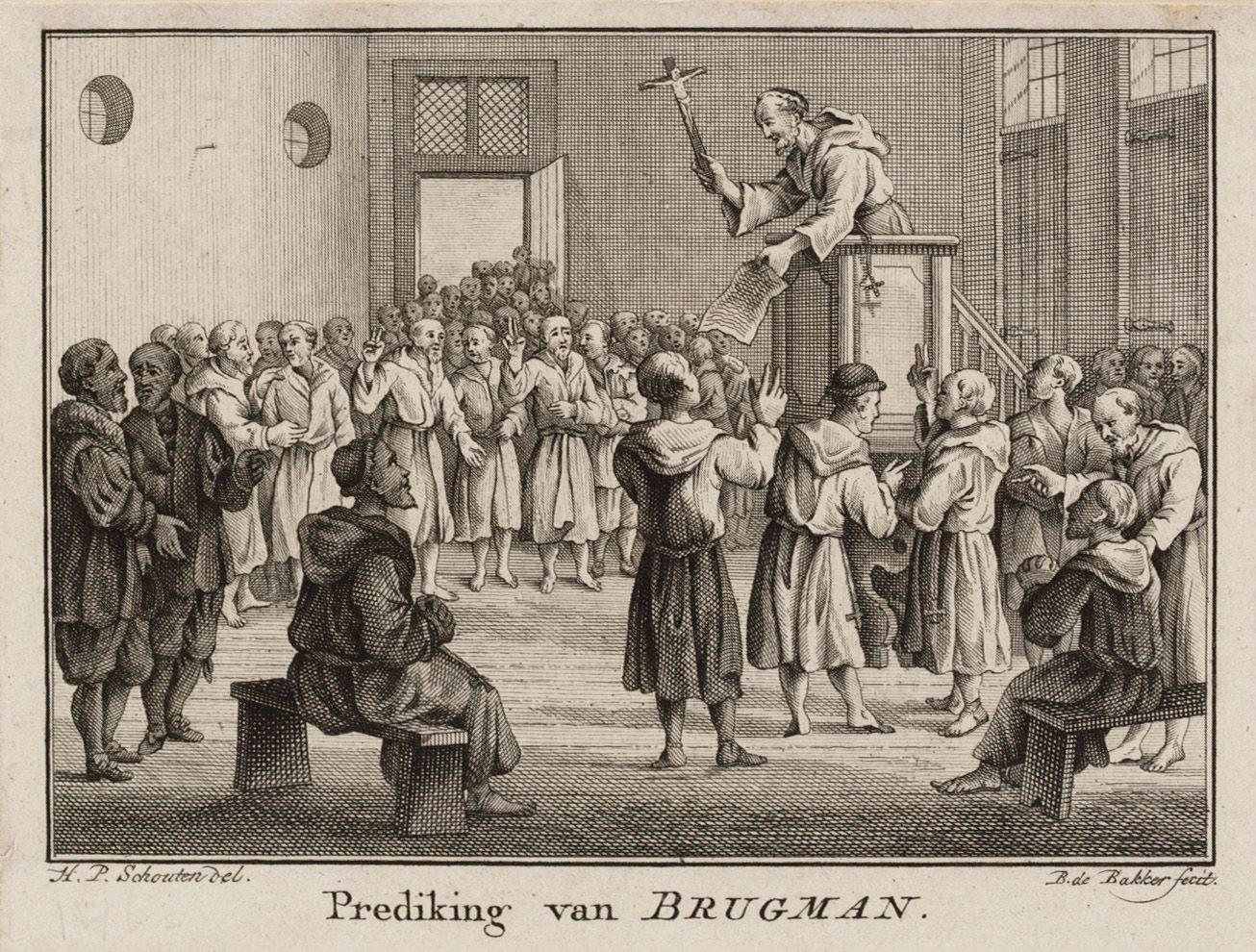Drinking like Brugman
Ubbo Emmius is considered the founder of the University of Groningen. His tombstone draws the eye, taking pride of place right in the centre of the foyer of the university building, and a statue bearing his likeness stands taller than man in the staircase. The text on his tombstone has been translated from Latin so everyone can read it – after all, the 21st century is nothing like the year 1624.
The following question has been asked throughout the ages: while Ubbo Emmius was the first rector of the University of Groningen, that is not the same as being the founder, right? A new school appoints a director but that word is not synonymous with founder, is it? And shouldn’t that honour go to mayor Alting, the gentlemen Phebens, Rengers ten Post, Lewen or trustee Scato Gockinga? But historians do not want to go that far. Klaas van Berkel, the university’s last biographer, writes: ‘Although he is not the actual founder, without him the university would not have flourished and become the success it is today.’
So what was Emmius’ vital role? Well, firstly, his historical work Rerum Frisicarum historia was widely recognized and made him a valued scholar, and not because everyone was so interested in the ups and downs of the lives of the Frisians – the people who were spread along the coastline of the North Sea and the Wadden Sea. No, his work set a new standard. Previous works had been published about the history of the Frisians, but as it turned out, they were entirely made up. Suffridus Petrus (1527-1597), who was named Historian of Friesland, wrote – without offering a shred of proof – that the father of all Frisians was a man named Friso and that he was not just anyone. No, supposedly he was biblical Noah’s grandson and also the son of the King of India. The story of Friso was copied by other historians, and was included in the renowned work Chronique ofte historische geschiedenis van Vrieslant, written by Pierius Winsemius (1586-1644).
Ubbo Emmius, on the other hand, based his entire history on original written resources, which still makes him a role model even to present-day historians. Due to the fact that Emmius also had an extensive international network, the university was able to attract professors of name and fame. Emmius was also well aware of which expertise he was lacking and where he could find it, for example by recruiting Scotsman William Makdowell, when he realized that in order to defend the reformed faith, knowledge of a type of metaphysics would be needed that he and his colleagues were unable to provide.
As stated, one of Emmius’ strengths was that he was able to find in others the skills he himself lacked. The opening speeches of the new university for example, were given by others. From Pancratius of Castricum, to Professor Ravensperger of Theology and Professor Huninga of Law, with a closing statement by MacDowell – anyone but Ubbo Emmius himself.
Emmius did not have the gift of the gab and it is assumed he also had a stutter. This lack of eloquence may have been the reason that, in book XXIV of his Rerum Frisicarum historia, he pays so much attention to Johannes Brugman’s visit to Groningen; a man who was considered a great orator and whose name continues to live on in the Dutch language through the expression ‘talking like Brugman’, meaning ‘to speak at length and with conviction’. Yes, this priest who lent his name to the proverb, father Jan Brugman OFM, also visited Groningen during his travels.
Emmius had the following to say in his discussion of the year 1455: ‘A man lived at that time who was a monk of the Franciscan order, driven by a burning zeal to teach the people. He observed depraved morals among all ranks of society: from lechery and a tendency to imbibe and binge among priests, to the unfairness of city officials, the greed and meddlesomeness of monks, and the countless sins of regular folk, and he reprimanded them all by reminding them of the wrath of God which would be shown through punishments including domestic and foreign wars and inescapable disasters.’ [1]
Jan Brugman did not beat about the bush – but who was this man? There is no information about where and when he was born. He joined the mendicant order of the Franciscans, also known as the Friars Minor, in Den Bosch around the year 1424. The latter means that we may assume that, although there is no written evidence, Brugman stayed with the Franciscans at Broerplein during his stay in Groningen, now the site of the University Library!
But why is Brugman such a popular figure? Well, as we can see from Emmius’ quote, Brugman did not hesitate to rage against the priesthood that, he believed, tortured the people with their moralistic lectures, talk of hocus-pocus, hellfire and damnation but who themselves did the opposite of giving the right example. A highlight for the masses was his lecture on inebriation. Brugman himself did not believe being a drunk was a bad thing. He even claimed Jesus Christ exhibited the tell-tale signs of a drunk: He forgets who he is, is oblivious to danger, does not mind being ridiculed and gives away everything he owns. Brugman stated (in old Dutch): “O en was hi niet wael droncken, doe hem die mynne dwanck, dat hi quam van den oversten hemel in dit nederste dal der eerden?” [2] (Oh and wasn’t he very drunk when love made him come down from heaven to this humble valley on earth?)
Such a wonderful comparison was not lost on the residents of Groningen, who gobbled it up like the drinks they adored.
Notes
- Translation from F.A.H. van den Hombergh, ‘Brugman en de brandende ijver. Het bericht over zijn preken te Groningen in 1452’ in Het Noorden in het Midden. Opstellen over de geschiedenis van de Noord-Nederlandse gewesten in Middeleeuwen en Nieuwe Tijd, ed. D.E.H. de Boer e.a. (Assen 1998), pp. 240-255
- Quote by Johan Huizinga, Herfsttij der Middeleeuwen, in Johan Huizinga, Verzamelde werken 3 (Haarlem 1949), p. 242
| Last modified: | 30 September 2022 10.08 a.m. |


